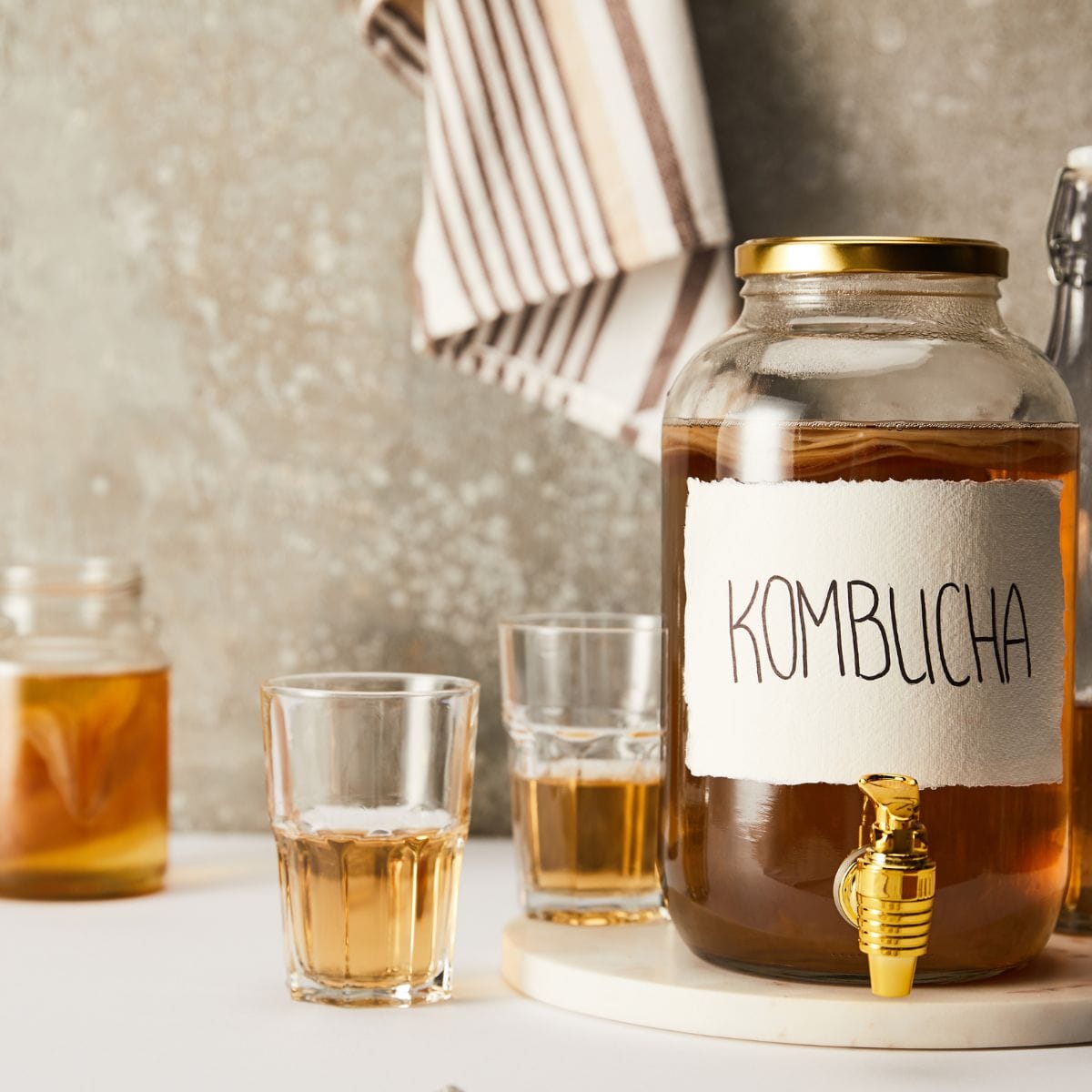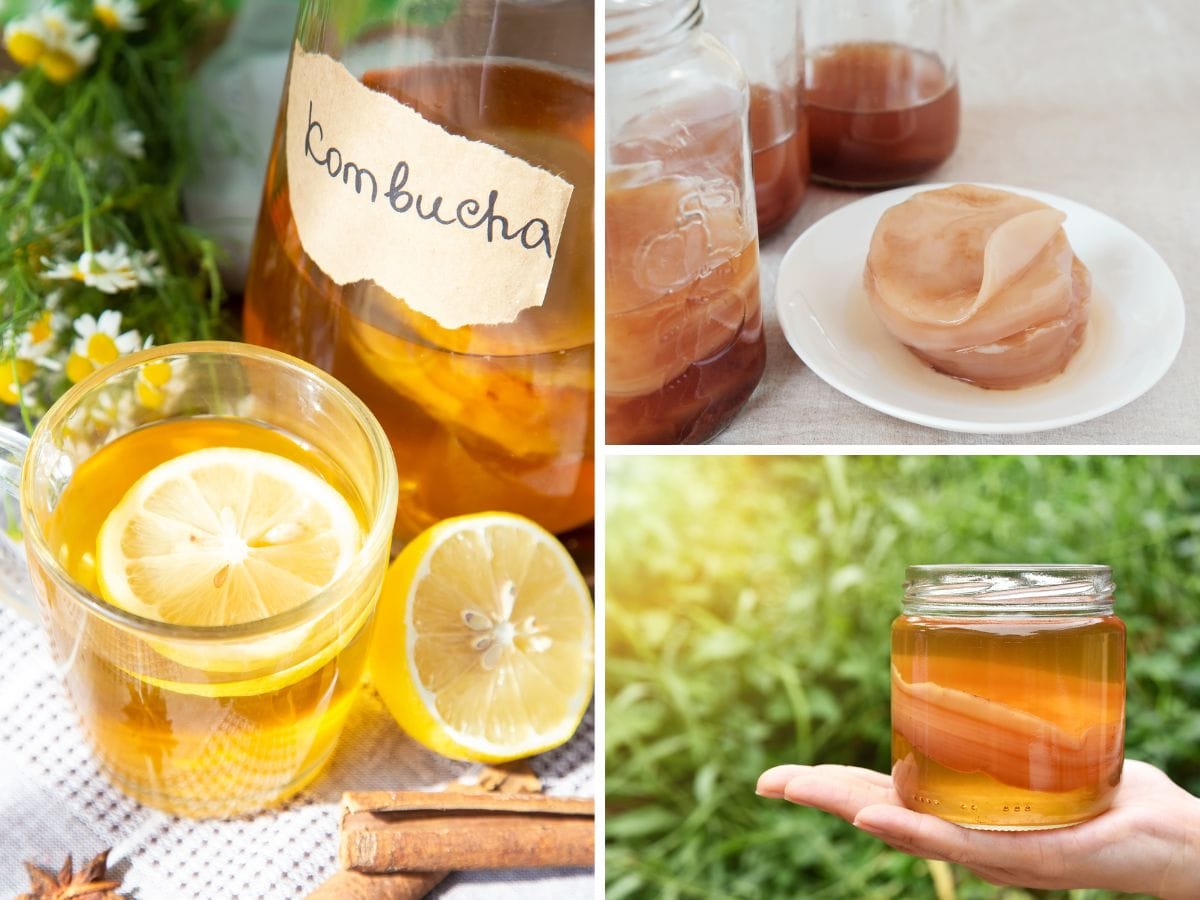Key Takeaways:
- Probiotic tea is believed to support gut health by introducing beneficial bacteria.
- The effectiveness of probiotic tea depends on the strains used and their survival through stomach acid.
- Combining probiotic tea with a balanced diet and healthy lifestyle can contribute to optimal health.
Probiotics have become a buzzword in the health and wellness industry, and for good reason. These live microorganisms, when consumed in adequate amounts, can provide numerous health benefits, particularly for digestive health. But what about probiotic tea? Does it hold the same promise as other probiotic products? Let's get into the details.
What is Probiotic Tea?
Probiotic tea is a type of tea that has been infused with live bacteria, specifically strains that are known to be beneficial to our health. Unlike traditional teas, which are valued for their antioxidants and calming effects, probiotic teas are designed to support gut health by adding probiotics to your diet.
The Science Behind Probiotic Teas
The idea behind probiotic tea is to deliver live bacteria to the digestive system. However, the challenge lies in ensuring that these bacteria survive the journey through the harsh environment of the stomach acid. Some probiotic strains are more heat stable and highly tolerant, making them suitable for tea formulations.
Surviving the Heat: Can Probiotics Make It?
One of the biggest questions surrounding probiotic tea is whether the live bacteria can survive both boiling water and stomach acid. Certain strains, like Bacillus coagulans, are known to be more resilient and can remain viable under extreme conditions, including high temperatures.
The Benefits of Probiotic Tea
Probiotic tea is said to offer a range of health benefits, from improved digestive function to enhanced immune health. By introducing good bacteria to the gut, these teas can help maintain a healthy balance of microflora, potentially leading to reduced gas, better ph balance, and overall digestive support.
Choosing the Right Strain
Not all probiotic strains are created equal. For a probiotic tea to be effective, it must contain a particular strain that is known to confer health benefits and is capable of surviving both boiling water and the acidic environment of the stomach.

Kombucha: The Original Probiotic Tea
Kombucha tea is perhaps the most well-known probiotic tea. It's a fermented tea that naturally contains a variety of probiotic bacteria. The fermentation process also produces tea polyphenols and organic acids, which can contribute to gut health and immune support.
Green Tea and Probiotics: A Powerful Duo
Green tea is already celebrated for its health properties, and when combined with probiotics, it may offer additional benefits. Some studies suggest that the tea polyphenols in green tea can act synergistically with probiotic bacteria, enhancing their effects.
Fermented Foods: Allies of Probiotic Teas
When we talk about fermented foods, we're discussing powerful allies in the quest for good gut health. These foods naturally contain probiotics that complement the health benefits of probiotic teas. By incorporating items like yogurt, kefir, and sauerkraut into your diet, you're not just enjoying a tasty meal; you're also introducing beneficial bacteria that can fight off bad bacteria in the GI tract. This symbiotic relationship between fermented foods and probiotic teas can play a key role in maintaining a balanced gut microbiome.
Moreover, when consuming bacillus coagulans, a special strain often found in fermented products, you're giving your immune system a boost. This particular probiotic strain is robust, and capable of surviving harsh environments, which means it can complement the probiotics found in your tea. Imagine sipping on a warm cup of black tea with probiotics, knowing that the fermented foods you've eaten are working in tandem to promote a healthier you. It's a multi-pronged approach to wellness that can make a significant difference in how you feel.
The Resilience of Probiotic Strains in Tea
When selecting a probiotic strain for tea, it's crucial to choose one that can survive boiling water. This is because the process of steeping a tea bag involves hot water, which can be detrimental to many probiotic strains. However, some strains are designed to withstand high temperatures, ensuring that they remain viable by the time you take your first sip. For instance, consuming bacillus coagulans in your tea is a smart choice, as this strain is known for its resilience and can survive the journey to your cup.
The ability of certain probiotics to withstand heat means that you can enjoy the full health benefits of your brew. Whether you prefer black tea, green tea, or an herbal blend, adding a heat-resistant probiotic can enhance the drink's efficacy. This is especially important for those taking probiotics to support their immune systems or to foster healthy gut bacteria. By choosing a tea bag that contains a special strain capable of enduring the brewing process, you're ensuring that each cup of tea plays a key role in supporting your body's health.
Lemon Ginger Tea: A Zesty Option
Lemon ginger tea is another popular choice for those looking to enjoy the benefits of probiotics. Often, this tea is enhanced with added probiotics to support gut health, and the natural flavors of lemon and ginger make it a delicious option.
Organic Dandelion Leaf Tea: A Unique Blend
Organic dandelion leaf tea is less common but is gaining popularity for its potential health benefits. When infused with probiotics, it can serve as a natural part of a healthy lifestyle, providing digestive support and other probiotic benefits.
Probiotic Supplements vs. Probiotic Teas
While probiotic supplements are a direct source of beneficial bacteria, probiotic teas offer a more enjoyable way to incorporate these microorganisms into your diet. However, it's important to ensure that the tea contains live bacteria in adequate amounts to have positive effects.
The Role of Diet in Probiotic Efficacy
For probiotic teas to work effectively, they should be consumed as part of a balanced diet. Foods rich in prebiotics, such as fruits, vegetables, and whole grains, can help feed the probiotics and enhance their benefits.
Can Probiotic Tea Replace Medical Treatment?
It's crucial to understand that while probiotic tea can provide extra support for gut health, it should not replace medical treatment. Always consult with a healthcare professional before adding probiotics to your regimen, especially if you have underlying health conditions.
How to Brew Probiotic Tea for Optimal Benefits
To maximize the benefits of probiotic tea, it's important to follow brewing instructions carefully. Avoiding excessively hot water can help preserve the live bacteria, ensuring that you receive the full probiotic properties of the tea.
Incorporating Probiotic Tea into Your Routine
Adding probiotic tea to your daily routine can be a simple and enjoyable way to support gut health. Whether you prefer tea bags or loose-leaf teas, there are many probiotic strains and flavors to choose from.
Summary
Probiotic tea presents an intriguing option for those looking to support their gut health through their diet. While the effectiveness of probiotic tea depends on the resilience of the strains used, there is potential for these teas to offer digestive and immune health benefits. However, they should be consumed as part of a balanced diet and healthy lifestyle to achieve optimal health.
FAQ Section
Q: Can probiotic tea really help improve digestive health? A: Yes, probiotic tea can help improve digestive health by introducing beneficial bacteria to the gut. However, the effectiveness depends on the strains used and their ability to survive stomach acid and hot water.
Q: How often should I drink probiotic tea? A: The frequency of drinking probiotic tea can vary depending on individual health goals and the specific tea used. It's best to follow the manufacturer's recommendations and consult with a healthcare professional.
Q: Can I make my own probiotic tea at home? A: While you can make fermented teas like kombucha at home, which naturally contain probiotics, adding probiotics to regular tea may not be as effective due to the heat sensitivity of many probiotic strains. It's often better to purchase specially formulated probiotic teas that contain heat-stable strains.







